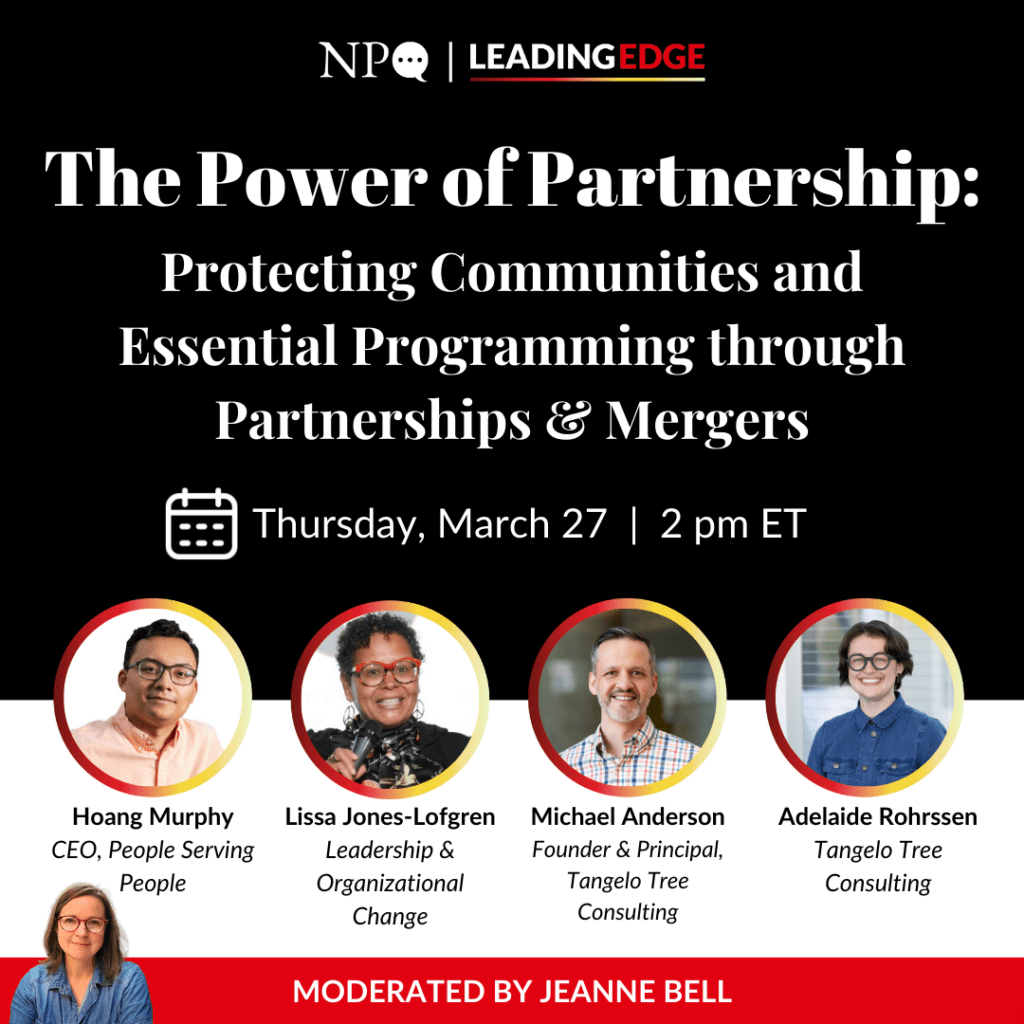
As president and CEO of a young adult cancer nonprofit organization, I am privileged to interact on a daily basis with caring, motivated, and driven college students. These engaged individuals are the foundation of many of our volunteer programs and make a big difference in the lives of their peers who are fighting cancer. They want to help, to be involved, and to give of themselves to others. That is why it is always surprising to hear their answers to the question, “What are you doing after graduation?” Few, if any, have given any thought to turning their passion for service into a career working at a nonprofit.
With 56.3 percent of college grads under the age of 25 either unemployed or underemployed, young adults not considering work in nonprofits are closing themselves off to a growing sector of the economy at a time they can ill afford to ignore any employment opportunities. From 2007 to 2009, nonprofit employment has grown at a rate of 1.9 percent per year, while for-profit jobs declined 3.7 percent per year over the same period, according to data from the Johns Hopkins University Center for Civil Society Studies. And there are no signs of that growth slowing down. 43 percent of nonprofits polled in the annual Nonprofit Employment Trends Survey indicate they will increase staff size in 2012.
In hopes of encouraging members of the class of 2012 to broaden their employment horizons, I will attempt to demystify the nonprofit sector and clear up three of the most common misconceptions I hear about the industry from college students, the first of which is that nonprofits are fundamentally different from for-profit businesses. Last week I had the “What are you doing after graduation” conversation with a college student I mentor. He said that he wanted to work at a for-profit where he would try to make as much money for the company as possible by selling their products and serving their target customers. I could only smirk and follow-up with, “How does that differ from working for an NPO?” Caught off guard, he replied, “Nonprofits don’t make money, don’t have customers and…” he couldn’t elaborate much more. I laughed and replied, “That’s exactly what I do! And if I don’t do it well, I will most likely be fired.” He looked at me completely perplexed, which lead me to get on this soapbox.
Somehow, those outside the nonprofit world see us as nothing but big-hearted, save-the-world kind of people who operate by the seat of our pants and have no business acumen to guide our organizations to success. Perhaps it is our tax status that confuses them. Or perhaps it’s that we often assume a different “culture” or “mentality” from many for-profits. Fact is, our books need to be balanced the same as a for-profit business, if not more so. Without superior management, we would fall apart just as fast as our for-profit brethren. Everything that must be done to ensure a successful business and happy shareholders must be done to ensure a successful nonprofit and happy stakeholders.
Sign up for our free newsletters
Subscribe to NPQ's newsletters to have our top stories delivered directly to your inbox.
By signing up, you agree to our privacy policy and terms of use, and to receive messages from NPQ and our partners.
There is also the persistent notion that “nonprofit” means no one gets paid. I can’t count the number of times someone asked me where I work, only to ask, “But what do you do for a living?” when I tell them I run a charitable organization. This misconception is damning in the eyes of young adults, many of whom are trying desperately to pay off student loans and put a small amount into savings. They tend to equivocate past unpaid interactions with nonprofits, perhaps as a helper handing out cups of water during a 5K, to future prospects of being paid to work for such organizations.
“Not-for-profit” does not mean “volunteer.” Like any business, we get paid for our work. Not extravagantly. Not with corporate bonus structures and golden parachutes. But enough to live our lives, support our families, and maybe take a quick vacation now and then. In fact, the average entry-level nonprofit job salary in 2012 is $42,000. According to SimplyHired.com, this compares to an overall (cross-sector) average entry-level salary of $43,000. The final misconception is that all nonprofits are the same. No one would think to lump together all for-profit businesses. But when it comes to nonprofits, people tend to think they are all either behemoth organizations that can be recognized by their colored awareness ribbon, or small groups with lemonade stands and raffles that are sustained by the kind donations of friends and family.
The truth is the nonprofit sector is a made up primarily of midsized organizations with budgets similar to many similarly sized for-profit businesses. Of all filing nonprofits, 82.3 percent have operating budgets of $1 million or less, according to the National Council on Nonprofits. Nonprofits exist in every field and at every size. Interested in politics? Perhaps you should consider a nonprofit think tank. Want to work directly on patching holes in the social safety net? You can. Want to be a nameless face working an entry-level position where your work stays out of your personal life? Those nonprofit positions exist as well.
For recent grads and young adults, I hope you don’t discount nonprofit work just because you are unfamiliar with it. Any skill you possess and intended to put to work at a for-profit business can and will be utilized to an equal degree at a nonprofit organization. Economics majors can just as easily work for a nonprofit as someone with a degree in social work. If you are looking for meaning in your life’s work, please give nonprofits a second look. And for those of us running nonprofits, we must do a better job of demystifying our sector to the next generation of job seekers. The future of our organizations depends on it.
Brock Yetso is the president and CEO of the Ulman Cancer Fund for Young Adults, a Baltimore-based nonprofit organization offering direct patient services to young adults and families fighting cancer. He has been with UCF since its inception in 1997, evolving from volunteer to board member and now to management, and he holds an economics degree from the University of Virginia.









